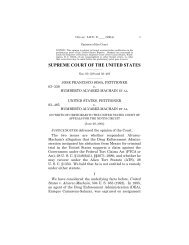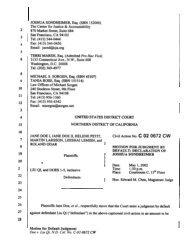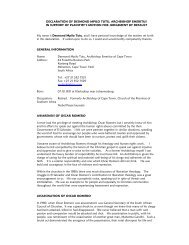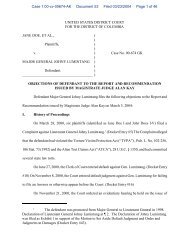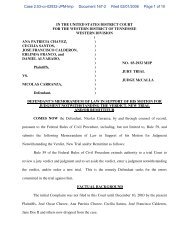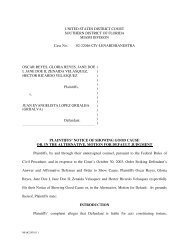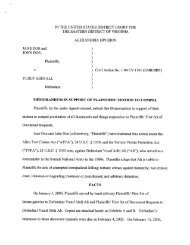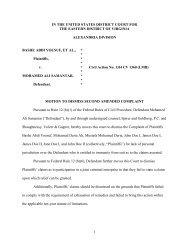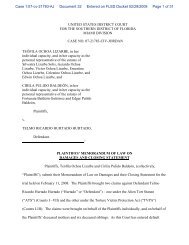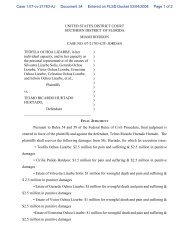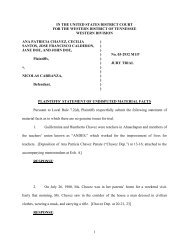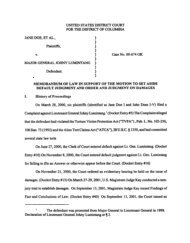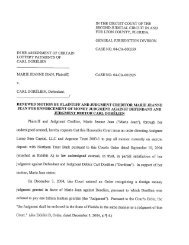Petitioner, v. Respondents. - Center for Justice and Accountability
Petitioner, v. Respondents. - Center for Justice and Accountability
Petitioner, v. Respondents. - Center for Justice and Accountability
Create successful ePaper yourself
Turn your PDF publications into a flip-book with our unique Google optimized e-Paper software.
37reach any constitutional question—the same considerationslead inexorably to the conclusion that the petitioners in thatcase, <strong>and</strong> in this one, are also entitled to bring habeas claimsdirectly under the Constitution. See id. at 486-88 (Kennedy, J.,concurring in judgment) (rejecting majority’s distinctionbetween statutory <strong>and</strong> constitutional right to habeas <strong>and</strong>,applying Eisentrager constitutional analysis, concluding thathabeas was available to the petitioners).In this case, there has been no attempted suspension ofthe Great Writ. The courts retain the “duty <strong>and</strong> power” tohear Hamdan’s claims. Yamashita, 327 U.S. at 9.Nor can the government establish any other compellingreason why, contrary to this historical tradition, theprotection of the Suspension Clause should not extend to thelimited challenges raised by Hamdan. Hamdan does not askthe courts to second guess the factual determinations of atribunal, but rather to exercise the quintessential legal (notmilitary) judgment of whether the commissions are lawfullyconstituted <strong>and</strong> whether he falls within their jurisdiction,determinations this Court has repeatedly made even in themidst of a declared war without ever suggesting that doingso would impermissibly interfere “in the conduct of militaryaffairs.” Rasul, 542 U.S. at 487 (Kennedy, J., concurring injudgment). See Quirin, 317 U.S. at 24-48; Yamashita, 327 U.S.at 9-25; see also Hamdi, 542 U.S. at 534 (plurality) (rejectingview that limited judicial review “will have the dire impacton the central functions of warmaking that the Government<strong>for</strong>ecasts”). Nor does Hamdan’s petition challenge themilitary’s authority to detain temporarily combatants in azone of hostilities in light of military necessities. To thecontrary, Hamdan challenges a proceeding that metes outretrospective punishment, not one that disables combatantsin an ongoing conflict. These factors “suggest[] a weakercase of military necessity <strong>and</strong> much greater alignment withthe traditional function of habeas corpus.” Rasul, 542 U.S. at488 (Kennedy, J., concurring in judgment).4. Had Congress provided an adequate substitute tohabeas, this would be a different case. See St. Cyr, 533 U.S. at305. But the limited judicial review in the DTA is whollyinadequate. See supra pp. 1-2, 13-15; Commonwealth Lawyers




